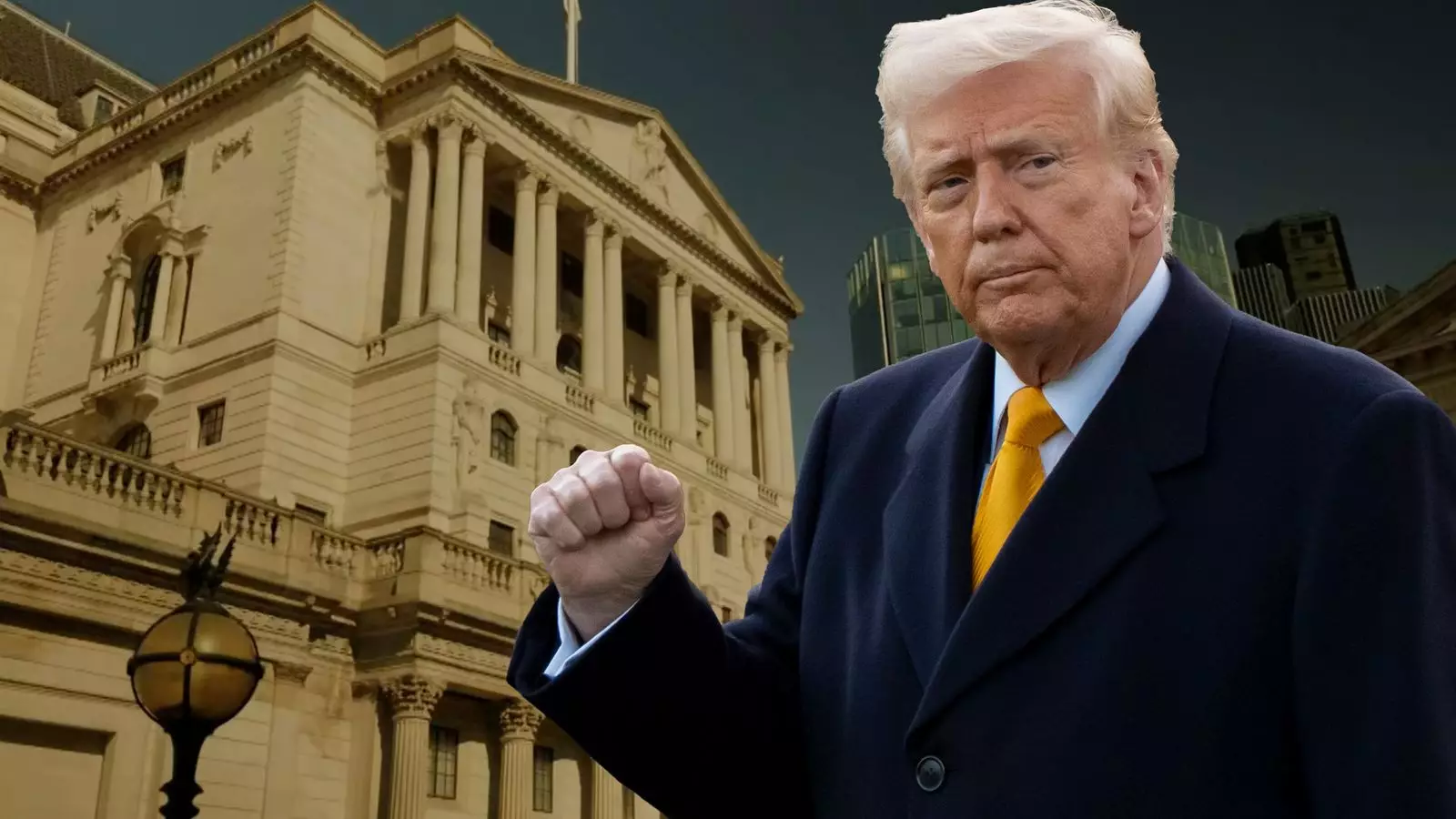Amidst the chaos of ongoing global trade tensions, it has become crystal clear that financial markets are bracing for drastic monetary policy shifts. The Bank of England is on the cusp of making pivotal decisions as forecasts have now solidified a 100% certainty of an interest rate cut next month. This decision isn’t simply a bureaucratic maneuver; it is a critical response to the ripple effects of Donald Trump’s capricious trade war. While earlier estimates indicated an 82% likelihood of a slight reduction in interest rates from 4.5% to 4.25% by May 8, the financial landscape shifted dramatically following discussions regarding inflation by a proactive member of the Monetary Policy Committee.
The uncertainty that enveloped the financial community was rapidly dispelled when Megan Greene provided her insight, suggesting that UK inflation may actually decline as a direct consequence of U.S. tariffs, rather than escalate. Her assertion that “tariffs represent more of a disinflationary risk than an inflationary risk” carries weight, yet it sips on a larger truth within today’s economic labyrinth: the multifaceted nature of globalization means that elements once thought to fuel inflation could transform into mechanisms that depress it, albeit unpredictably.
Currency Fluctuations: A Double-Edged Sword
In this critical climate, Greene also highlighted the unexpected surge of the pound against the dollar, a development that offers both promise and caution. While a stronger pound might lend a hand in alleviating inflationary pressures, Greene was quick to remind us that predicting currency trajectories is a precarious business. This uncertainty extends into broader economic performance; the fluctuations in value stem from a delicate interplay of factors, including energy prices and impending tax hikes, which all contribute to a looming crisis in the UK economy.
The Bank of England is under immense pressure to sidestep the pitfalls of rising inflation while simultaneously igniting a dormant economy. The authority’s capacity to maneuver is constrained; rising inflation could extinguish whatever limited room they have to offer growth stimuli through rate cuts. In a world where economic activity faces the heavy weight of trade wars and unpredictable tariffs, policymakers find themselves dancing on a tightrope, balancing between inflation control and economic revival.
The Global Ripple Effect of U.S. Tariffs
It is vital to recognize that this is not just a British dilemma. The implications of the trade war extend far and wide, affecting not only the U.S. and UK but also the global economic ecosystem. The European counterparts are already cutting rates at a faster pace, demonstrating how interconnected our economies are. The hesitation by the Federal Reserve to curb the anticipated slowdown—fueled largely by tariffs—has only fanned the flames of frustration in political quarters, as seen in Trump’s public uproar against Fed Chair Jay Powell.
To distill this complicated situation further, the policies that fail to adequately confront rising inflation, yet are simultaneously designed to bolster economic growth, reflect a dangerous imbalance. The outcome is a political theatre that shifts the focus from responsible governance to impulsive demands for immediate action, as can be seen from Trump’s recent calls for instant rate cuts.
The Chancellor’s Role in Global Economic Discourse
Presently, Chancellor Rachel Reeves is positioned at the heart of this storm, engaged in critical dialogues in Washington aimed at dismantling the very tariffs that create economic strangulation. Her mission coincides with a broader urgency to cultivate a conducive environment for trade, thereby alleviating the pressures that throttle UK economic prosperity. Should the Bank of England decide to cut rates, it will not only energize Reeves’ agenda but will serve as an emblem of proactive governance during tumultuous times.
As the world watches, the stakes have never been higher. The decisions to be made by the Bank of England will resonate through the corridors of financial markets and government chambers alike. The complexities inherent in trade dynamics and inflationary pressures may well dictate whether we advance toward a future marked by stability or one fraught with economic volatility. In a climate where decisive action is paramount, the repercussions of inaction could be far-reaching, reiterating the importance of thoughtful policy-making that is driven by analytical rigor rather than mere reaction.


Leave a Reply